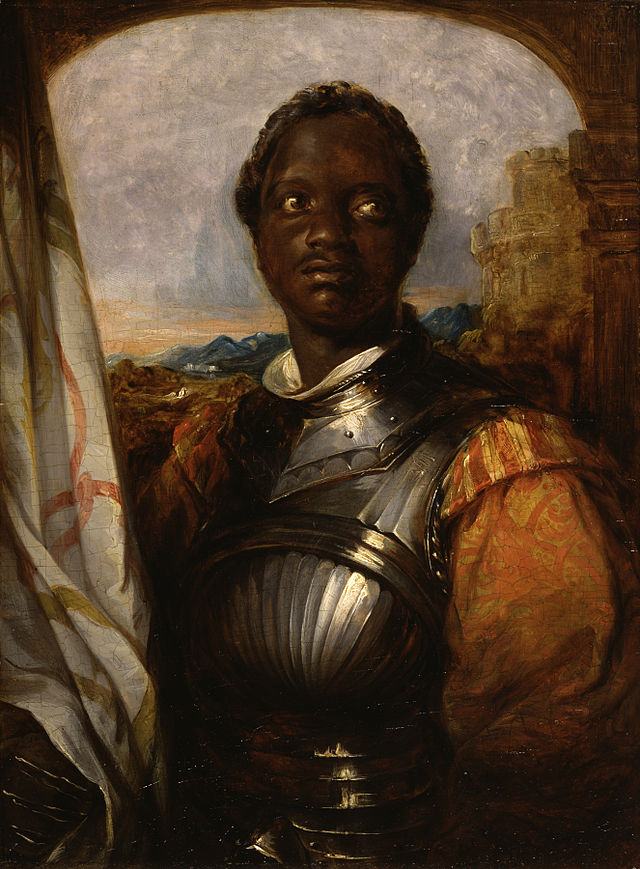Earlier this month, the Arizona Center for Medieval and Renaissance Studies launched Throughlines, a free online resource for educators who want to talk about race in their classrooms. The site features an entire topic page devoted to Shakespeare, and while the content is geared towards the college classroom, Throughlines is a pedagogical treasure trove that can be used to deepen discussions of Shakespeare at any grade level. Bringing Shakespeare into the modern moment through contemporary connections and critical frameworks is a huge part of keeping his work alive, and that includes taking a look at all the ways Shakespeare’s work has shaped and engaged with concepts of race. You might think that Shakespeare has nothing to do with race, but the intersection of these topics has birthed a whole field of study populated by scholars who argue that it is impossible to deeply engage with Shakespeare without grappling with early modern constructions of race. Throughlines provides resources for broaching this complex topic in the study of classic literature while contributing to the growing landscape of antiracist pedagogy. Here are some highlights we think could be especially useful as you craft your next Shakespeare unit, but we encourage you to explore the full site!
Video: Witnessing whiteness in the early modern world
This 5-minute video provides a brief foundational overview of how whiteness operated as a “racial identity loaded with national, political, and economic concerns” in the early modern world. Scholar Kim F. Hall encourages teachers who want to discuss race in Shakespeare to first cultivate the ability to recognize whiteness at work in his plays, and encourage students to notice how all Shakespeare characters, not just those who are “explicitly othered,” are navigating their own racial identities.
Assignment: BIPOC lives in the English archives
This assignment challenges the misconception that people of color did not exist in England in Shakespeare’s time and the years that followed, and instead asks students to conduct their own research into the life of a specific BIPOC person living in England between 1500-1700. Students are also asked to consider the challenges they encountered while attempting to access this information, and what forces have led to the historical erasure of BIPOC people in the UK.
followed, and instead asks students to conduct their own research into the life of a specific BIPOC person living in England between 1500-1700. Students are also asked to consider the challenges they encountered while attempting to access this information, and what forces have led to the historical erasure of BIPOC people in the UK.
Video: Race in Hamlet: The violent Black man myth
This 8-minute video featuring scholar Ian Smith examines the “racial myth-making” in Hamlet as an artifact of the larger story of race creation, tracing the “violent Black man myth” to modern ideas and institutions where it continues to cause immense harm.
Video: Indigenizing Shakespeare Movement
In this 8-minute video, Scholar Madeline Sayet points out that in America, while “British culture is mythologized as our theatrical heritage and Shakespeare is the most produced playwright on these shores,” Indigenous people have always had to fight to tell their stories on stage. Sayet goes on to briefly cover historical milestones at the intersection of Shakespeare and Native American theater since the 1920s, tracking the ways in which Shakespeare has been used as a tool of colonization, and how Indigenous voices have interpreted the Bard on their own terms.
Video: Student approaches to adaptations of Shakespeare
In this 3-minute video, Throughlines Director Ruben Espinosa discusses an assignment he uses to empower his students to consider contemporary social justice issues in their own video Shakespeare productions. Espinosa encourages educators to use this assignment and others like it to give students “agency in redefining Shakespeare’s enduring value in our present day”.
Assignment: One word essay
This assignment idea, presented by scholar Kim F. Hall, asks students to pick a single word from a Shakespeare play and practice using primary sources to research their word, build an argument, and craft an essay that analyzes its meaning and function. Hall offers this assignment as a way to “build [a student’s] confidence in [their] ability to analyze language in detail.”
Video: Blackness and Shakespeare’s sonnets
In this 4-minute video, scholar Kim F. Hall discusses how Shakespeare’s sonnets provide rich ground for racialized language analysis and for making connections with modern racialized beauty standards.










